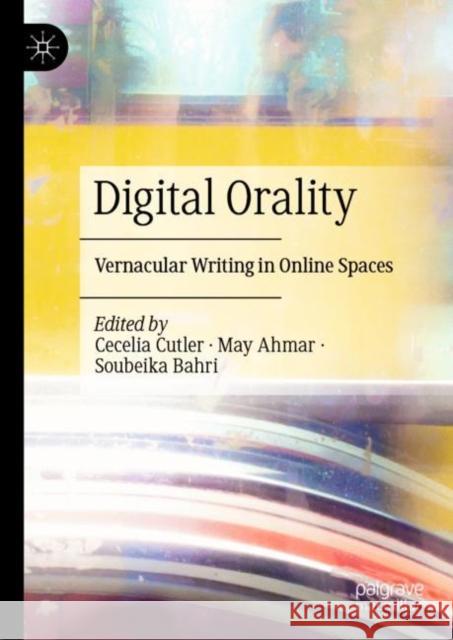Digital Orality: Vernacular Writing in Online Spaces » książka
Digital Orality: Vernacular Writing in Online Spaces
ISBN-13: 9783031104329 / Angielski / Twarda / 2022 / 302 str.
Digital Orality: Vernacular Writing in Online Spaces
ISBN-13: 9783031104329 / Angielski / Twarda / 2022 / 302 str.
(netto: 575,06 VAT: 5%)
Najniższa cena z 30 dni: 539,74
ok. 22 dni roboczych.
Darmowa dostawa!
This volume showcases innovative research on dialectal, vernacular, and other forms of “oral,” speech-like writing in digital spaces. The shift from a predominantly print culture to a digital culture is shaping people's identities and relationships to one another in important ways. Using examples from distinct international contexts and language varieties (kiAmu, Lebanese, Ettounsi, Shanghai Wu, Welsh English, and varieties of American English) the authors examine how people use unexpected codes, scripts, and spellings to say something about who they are or aspire to be. This book will be of particular interest to students and scholars interested in the impact of social media on language use, style, and orthography, as well as those with a broader interest in literacy, communication, language contact, and language change.
This volume showcases innovative research on dialectal, vernacular, and other forms of “oral,” speech-like writing in digital spaces. The shift from a predominantly print culture to a digital culture is shaping people's identities and relationships to one another in important ways. Using examples from distinct international contexts and language varieties (kiAmu, Lebanese, Ettounsi, Shanghai Wu, Welsh English, and varieties of American English) the authors examine how people use unexpected codes, scripts, and spellings to say something about who they are or aspire to be. This book will be of particular interest to students and scholars interested in the impact of social media on language use, style, and orthography, as well as those with a broader interest in literacy, communication, language contact, and language change.











